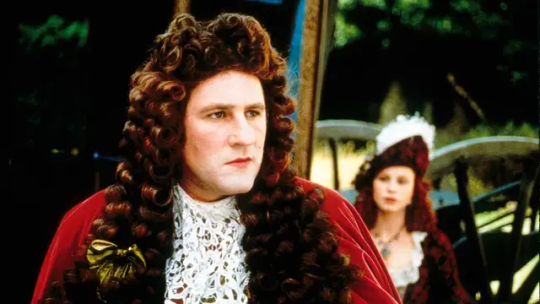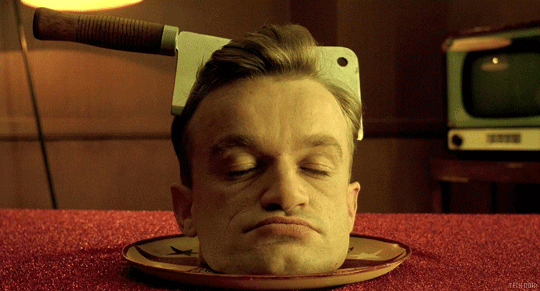#Jean-Claude Dreyfus
Explore tagged Tumblr posts
Text










d e l i c a t e s s e n, 1991 🎬 dir. jean-pierre jeunet, marc caro
#film#french cinema#dark comedy#delicatessen#Delicatessen 1991#jean pierre jeunet#marc caro#dominique pinon#Marie-Laure Dougnac#Jean-Claude Dreyfus#karin viard#Ticky Holgado#as Louison#Julie Clapet#as Clapet#Mademoiselle Plusse#Marcel Tapioca
22 notes
·
View notes
Text

Jean-Claude Dreyfus by Denis Rouvre
5 notes
·
View notes
Text

Je serai bientôt à l'antenne avec un Drôle de Coco, pas de chez Chanel non, plutôt du genre Coco-Bel-Œil 👁️ Un dur à cuire difficile à faire fondre au premier regard même si, d'abord à feu doux (et non à l'étouffée, surtout pas !), puis en maintenant une température à cœur pendant quelques minutes, il finit par se révéler (rêve ailé) tendre à souhait.
Il faut dire qu'il est notamment connu pour avoir été un boucher sanguinaire au cinéma (Delicatessen), ainsi qu'un Dragon et quelques monstres/monstresses au théâtre (300 pièces et une seule vie !).
Peut-être l'avez-vous croisé à La Grande Eugène à l'époque, Fassbinder et sa bande n'avaient d'yeux que pour sa "Toute Méchante" (aurait dit Genet) et délicieuse créature, Erna von Scratch.
Je serai donc sur les ondes de France Culture du 13 au 17 novembre (20h-20h30 chaque soir), en direct différé du Musée des Arts forains et en compagnie de Monsieur Dreyfus JC (Jessy), qu'on appelle aussi MC Rictus dans les milieux les plus interlopes, tant il a contribué à redonner vie à la verve révolutionnaire du poète Gabriel Randon de Saint-Amand plus connu sous le nom de Jehan Rictus.
"Jean-Claude Dreyfus, anatomie d'un joueur"
(À voix nue - France Culture)
Du 13 au 17 novembre 2023
20h-20h30
Philippe Bresson
https://www.radiofrance.fr/personnes/philippe-bresson
2 notes
·
View notes
Text

Todas las mañanas del mundo (1991





#Gérard Depardieu#Guillaume Depardieu#Jean-Pierre Marielle#Anne Brochet#Carole Richert#Jean-Claude Dreyfus#Alain Corneau#sundance
0 notes
Text

Immer schön ist Delicatessen, Jeunets et Caros besonders liebevoll ausgestattete postapokalyptische Liebeskomödie mit Mord, Intrigen, Verdorbenheit, Akrobatik, Kannibalismus und Hausmusik für Cello und singende Säge.
#Delicatessen#Jean-Claude Dreyfus#Dominique Pinon#Marie-Laure Dougnac#Karin Viard#Rufus#Film gesehen#jean-Pierre Jeunet#Marc Caro
1 note
·
View note
Text



Patrice BOYET
"Nuits / Voix Mémoire"
(LP. Anagramme Production. 1983) [FR]
#patrice boyer#1983#france#contemporary#dance#rainer maria rilke#friedrich nietzsche#anne dreyfus#jean claude camors#john boswell#vincent limouzin#laurent hoevenaers#records
2 notes
·
View notes
Text

. Nobody is entirely evil: it's that circumstances that make them evil, or they don't know they are doing evil.
Delicatessen, Marc Caro and Jean-Pierre Jeunet (1991)
#Marc Caro#Jean Pierre Jeunet#Gilles Adrien#Dominique Pinon#Marie Laure Dougnac#Jean Claude Dreyfus#Karin Viard#Ticky Holgado#Anne Marie Pisani#Edith Ker#Rufus#Jacques Mathou#Howard Vernon#Darius Khondji#Carlos D'Alessio#Hervé Schneid#1991
10 notes
·
View notes
Text

Title: Death and the Winemaker
Rating: NR
Director: Victor Jaquier
Cast: Kacey Mottet Klein, Virginie Meisterhans, Jean-Claude Dreyfus, Jacques Roman, Séverine Bujard, Stéphanie Schneider
Release year: 2021
Genres: horror, fantasy
Blurb: A winemaker creates the most exquisite wine in the world to win a noblewoman's hand. When Death herself wants a taste, he discovers that his bride is next on her list, and must think quickly to save her.
#death and the winemaker#nr#victor jaquier#kacey mottet klein#virginie meisterhans#jean claude dreyfus#jacques roman#séverine bujard#2021#horror#fantasy
2 notes
·
View notes
Text
youtube
O irmão mais velho de O sobrevivente (1987) e pai de Jogos Vorazes: "O preço do perigo" (1983)
#Le Prix du Danger#1983#80's movies#Yves Boisset#Robert Sheckley#The Prize of Peril#Michel Piccoli#Gérard Lanvin#Gerard Lanvin#Marie France Pisier#Bruno Cremer#Andréa Ferreol#Andrea Ferreol#Jean Rougerie#Henri Jacques Huet#Jean Claude Dreyfus#french movie#Jean Pierre Bagot#Gabrielle Lazure#Catherine Lachens#Steve Kalfa#Youtube
1 note
·
View note
Text
2024 Book List
January
1. Trances of the Blast, Mary Ruefle
2. Falling Star, Patricia Moyes
3. Labyrinths, Jorge Luis Borges
4. Introduction to the Work of Marcel Mauss, Claude Lévi-Strauss
5. The Sweet Dove Died, Barbara Pym
6. The Prison-House of Language, Fredric Jameson
7. The Order of Things, Michel Foucault
8. Illuminated Manuscripts, Tamara Woronowa and Andrej Sterligow
9. Structuralism, John Sturrock
February
10. Immediacy; or the Style of Too Late Capitalism, Anna Kornbluh
11. The Dark Frontier, Eric Ambler
12. Macbeth, William Shakespeare
13. Michel Foucault: Beyond Structuralism and Hermeneutics, Hubert Dreyfus and Paul Rabinow
14. Don’t Look at Me Like That, Diane Athill
15. The Most of It, Mary Ruefle
16. The Archaeology of Knowledge, Michel Foucault
March
17. Henry IV Part 1, William Shakespeare
18. A Murder Is Announced, Agatha Christie
19. Shakespeare, Johan Gottfried von Herder
20. Literary Theory for Robots, Dennis Yi Tenen
21. Henry IV Part 2, William Shakespeare
22. Richard II, William Shakespeare
23. Lucy Gayheart, Willa Cather
24. Henry V, William Shakespeare
25. Mimesis, Expression, Construction, Fredric Jameson
26. Four-Legged Girl, Diane Seuss
27. Death of a Nationalist, Rebecca Pawel
28. The Flight From the Enchanter, Iris Murdoch
29. The Purloined Clinic, Janet Malcolm
April
30. King Lear, William Shakespeare
31. White Butterfly, Walter Moseley
32. Humanism and Antihumanism, Kate Soper
33. The Illusion of the End, Jean Baudrillard
34. Discourse on Method, René Descartes
35. Meditations on First Philosophy, René Descartes
36. Cambridge Companion to Descartes, John Cottingham ed
37. The Ordinal Society, Marion Fourcade and Kieran Healy
38. Much Ado About Nothing, William Shakespeare
39. Primer, Bob Perelman
40. As You Like It, William Shakespeare
May
41. A Midsummer Night’s Dream, William Shakespeare
42. The Ballad of Peckham Rye, Muriel Spark
43. Preface to Shakespeare, Samuel Johnson
44. The Weariness of the Self, Alain Ehrenberg
45. Harmonium, Wallace Stevens
46. Mr. Scarborough’s Family, Anthony Trollope
47. Computing Taste, Nick Seaver
48. Hamlet, William Shakespeare
June
49. On Shakespeare, Northrop Frye
50. The Taming of the Shrew, William Shakespeare
51. The Double Shift, Jason Read
52. Romeo and Juliet, William Shakespeare
53. La Vendée, Anthony Trollope
54. Mirror Worlds, David Gelertner
55. The Commercialization of Intimate Life, Arlie Hochschild
July
56. In Our Own Image, Fred Ritchin
57. Bending the Frame, Fred Ritchin
58. After Photography, Fred Ritchin
59. Cue the Sun!, Emily Nussbaum
60. Appointment With Death, Agatha Christie
61. The Friend, Sigrid Nunez
62. Libra, Don DeLillo
63. The Interpretation of Cultures, Clifford Geertz
64. Mimesis, Erich Auerbach
65. Julius Caesar, William Shakespeare
August
66. Antony and Cleopatra, William Shakespeare
67. Nonrequired Reading, Wisława Szymborska
68. Traveling, Ann Powers
69. Annie Bot, Sierra Greer
70. Regency Buck, Georgette Heyer
71. Coriolanus, William Shakespeare
September
72. Troilus and Cressida, William Shakespeare
73. Fools of Time, Northrop Frye
74. Bel Canto, Ann Patchett
75. Measure for Measure, William Shakespeare
76. William Shakespeare, Terry Eagleton
77. Shakespeare’s Problem Plays, E.M.W. Tillyard
78. Twelfth Night, William Shakespeare
79. The Merchant of Venice, William Shakespeare
80. Othello, William Shakespeare
81. AI Snake Oil, Arvind Narayanan and Sayash Kapoor
82. Passage of Arms, Eric Ambler
October
83. All’s Well That Ends Well, William Shakespeare
84. The Book of the Courtier, Baldesare Castiglione
85. Fables of Aggression, Fredric Jameson
86. Intermezzo, Sally Rooney
87. The Pleasure of the Text, Roland Barthes
88. Liars, Sarah Manguso
89. James, Percival Everett
November
90. Aesthetics and Politics, Bertholt Brecht, Walter Benjamin et al.
91. Protocol, Alexander Galloway
92. Sartor Resartus, Thomas Carlyle
93. The Unaccountability Machine, Dan Davies
94. Timon of Athens, William Shakespeare
95. Machines Who Think, Pamela McCorduck
December
96. Henry VI, Part 1, William Shakespeare
97. Henry VI, Part 2, William Shakespeare
98. The Triumph of Achilles, Louise Glück
99. All Shot Up, Chester Himes
100. The Saint-Fiacre Affair, Georges Simenon
101. Henry VI, Part 3, William Shakespeare
8 notes
·
View notes
Text
by NORMAN J.W. GODA
All of this made perfect sense to French Trotskyists and Maoists. Pro-Palestinian anti-Zionist organizations formed in France after the Six-Day War. They included university students who styled themselves as revolutionaries. Using the language of anti-colonialism still fresh from France’s ill-fated attempt to retain Algeria, these organizations also borrowed the legacy of the French Resistance, neatly turning the Israelis into the Nazis. French keffiyeh-wearing Communists complained of Jewish press control. “Palestine solidarity” events included distribution of the Protocols of the Elders of Zion. As Jewish writer Gérard Rosenthal put it in early 1970, “The problem of Israel is becoming a national problem.” Israel’s seasoned ambassador Asher Ben-Natan, who arrived in Paris in 1970, noted that relations with France had hit difficulties because “there exists also in France elements that have suddenly adopted anti-Israel attitudes.”
How did France’s Jews respond? By asserting their Jewishness without sacrificing their claim to France’s promise of universal dignity. “The world,” said Meïr Waintrater, the editor of the Jewish monthly L’Arche, in April 1970, “only likes dead Jews. . . . It is impossible today to open a newspaper without finding an article [that] gives Jews advice — which curiously resembles orders — on how to be Jewish or how to be French.” Later, in 1977, filmmaker Claude Lanzmann asked, “Why must the Jews feel obligated after Auschwitz to speak in [polite] language? To prove that they are really French? This language . . . is from the time of Dreyfus! It is the language [from] before the creation of Israel! If we are to protest, I ask that we do so as Jews!”
The chief vehicle of the French-Jewish campaign was the International League against Racism and Antisemitism (LICRA), formed in 1927 in reaction to the dreadful treatment of Jews in Eastern Europe after World War I. After World War II, LICRA countered racism as well, monitoring everything from apartheid in South Africa to the civil rights movement in the United States to the war in Vietnam to the treatment of Arab workers in France. For French Jews, anti-antisemitism and the fight against racism were both part of the struggle for human dignity. LICRA saw no contradiction between opposing racism and advocating the safety of the State of Israel. If the world was divided, it was not between the oppressors and the oppressed. It was divided into those whose rights to safety were respected and those whose rights were not.
LICRA altered its view on de Gaulle. He was still the man who, on June 18, 1940, had called for resistance to the Germans in the name of the universalism France represented. As LICRA president and former Gaullist intelligence officer Jean Pierre-Bloch put it, “We will never forget.” But Pierre-Bloch also noted publicly that de Gaulle “is betraying the Franco-Israeli friendship, not to [help] the Arab people, but to support the potentates who rule these people to their great detriment.” Understanding that the French policy encouraged Arab extremists to hold out for Israel’s destruction rather than work for peace, LICRA also led demonstrations of Jews and non-Jews in Paris and other cities against what Pierre-Bloch called “the scandalous embargo.” Meanwhile LICRA called for a Palestinian state — but without the PLO, whose terror operations disqualified it from any human-rights struggle.
LICRA’s writers, Jews and non-Jews, also tried to expose the antisemitic nature of anti-Zionism in their newspaper Le Droit de vivre. Didier Aubourg, who worked for Judeo-Christian amity in France, wrote in March 1970, “Of all the forces that threaten Israel, the Arab armies are far from the most fearsome. The most relentless enemy . . . is indeed antisemitism, the old antisemitism that no longer dares to say its name, but which, rebaptized as anti-Zionism, has never lost its murderous virulence.” Former member of the Resistance, writer, and curator Jean Cassou was more direct. Anti-Zionism, he said, was “a wonderful invention,” because it “allows everyone to be an antisemite in good conscience from now on.”
As for the PLO’s mask of humanism and progressivism, philosopher Anne Matalon noted in the spring of 1968 that “one would be justified in thinking” that the PLO “would recognize . . . the Israeli people.” Instead, the PLO resembled “a capricious child or psychopath” who insisted that history could be turned back. Could the PLO really pose as revolutionary? Jacques Givet, whose family was murdered in Auschwitz and who narrowly escaped death by jumping from a deportation train, said no. “Any apology for al-Fatah, however veiled,” he wrote in March 1969, referring to the PLO’s main group, “is by necessity an apology for genocide.” Unlike the anti-colonial terror in Algiers, Givet argued, “Free Palestine” was little more than a slogan wrapped in pseudo-revolutionary imagery to justify Israel’s destruction and the killing of Jews. François Musard, a member of the Jewish Resistance, identified Palestinian terror as “defiance of the most elementary rules of civilization.” It “strikes blindly in theaters, in markets, among innocent populations where their victims are more often women and children. It wants nothing more than ‘to kill a Jew.’”
20 notes
·
View notes
Text










d e l i c a t e s s e n, 1991 🎬 dir. jean-pierre jeunet, marc caro
#film#french cinema#dark comedy#delicatessen#Delicatessen 1991#jean pierre jeunet#marc caro#dominique pinon#Jean-Claude Dreyfus#as Louison#as Clapet
2 notes
·
View notes
Text
people who signed the letter in support of depardieu (an abuser):

Benoit Poelvoorde (actor), Nathalie Baye (actress), Carole Bouquet (actress), Jacques Dutronc (singer), Charlotte Rampling (actress), Yvan Attal (actor and director), Jacques Weber (actor), Bertrand Blier (director ), Emmanuelle Seigner (actress), Roberto Alagna (singer), Michel Fau (actor and director), Victoria Abril (actress), Dominique Besnehard (actor and producer) Carla Bruni (singer), Pierre Richard (actor), Clémentine Célarié (actress), Gérard Darmon (Actor), Rudy Ricciotti (architect), Christophe Barratier (director), Arielle Dombasle (singer), Francis Veber (director), Patrice Leconte (director), Brigitte Fossey (actress), Boualem Sansal ( writer), Charles Berling (actor), Yannis Ezziadi (actor and author) Philippe Caubère (actor), Vincent Perez (actor), Myriam Boyer (actress), Antoine Dulery (actor), Afida Turner (singer), Paolo Branco (producer ), Jean-Marie Rouart, of the French Academy (writer), Josée Dayan (director), Joel Seria (director), Bernard Murat (director), Serge Toubiana (film critic and former director of the Cinémathèque française) , Catherine Millet (writer), Jacques Henric (writer), Stéphanie Murat (director), Marie-France Brière (producer and director), Daniel Humair (musician and painter), Judith Magre (actress), David Bélugou (theater decorator) , Marie Beltrami (stylist), Tanya Lopert (actress), Jean-Claude Dreyfus (actor), Chiara Muti (actress), Jean-Marie Besset (playwright), Stéphane Druet (director), Christine Boisson (actress), Karine Silla-Perez (actress and director), Myriam Boisaubert (poet), Lilian Euzéby (painter), Marion Lahmer (actress).
Nadine Trintignant announced this December 29 in “Le Point” that she was withdrawig her signature from the platform.
"Hi ! About Depardieu and the letter: yes, a lot of people such as Nadine Tratignant and Carole Bouquet withdrawed their signature. Not because supporting the victims but because the author of the letter is far right (in french "d'extrême droite) and national journal say it. They still support Depardieu. For example, Carole Bouquet was a great supporter of Depardieu few days ago in a lot of radio/tv show."
2 notes
·
View notes
Text

#ProyeccionDeVida
📣 Kino Cat / Cine Tulipán, presenta:
🎬 “DELICATESSEN” 🏘🐷🍳👨🍳🔪🍷🍺🍴🍲🍚🍖🍢🐖
🔎 Género: Fantástico / Comedia / Futuro Post-Apocalíptico / Película de Culto
⏰ Duración: 95 minutos

✍️ Guion: Jean-Pierre Jeunet, Marc Caro y Gilles Adrien
🎼 Música: Carlos d'Alessio
📷 Fotografía: Darius Khondji

💥 Argumento: En un inmenso descampado, se alza un viejo edificio habitado por personas de costumbres más bien extrañas, que sólo tienen una preocupación: alimentarse. El propietario es un peculiar carnicero que tiene su establecimiento en los bajos del bloque. Un día llega un nuevo inquilino que trabaja en el circo y que altera la vida de la excéntrica comunidad que lo habita.

👥 Reparto: Marc Caro (Fox), Dominique Pinon (Louison), Marie-Laure Dougnac (Julie Clapet), Pascal Benezech (Mr Houy), Jean-Claude Dreyfus (Clapet), Karin Viard (Mademoiselle Plusse), Mikael Todde (Young Rascal), Anne-Marie Pisani (Madame Tapioca) y Silvie Laguna (Aurore Interligator).

📢 Dirección: Jean-Pierre Jeunet y Marc Caro
© Productoras: UGC Images & Hachette Première et Cie
🌎 País: Francia
📅 Año: 1991

📽 Proyección:
📆 Martes 25 de Marzo
🕘 9:30pm.
🐈 El Gato Tulipán (Bajada de Baños 350 – Barranco)
🚶♀️��♂️ Ingreso libre
0 notes
Text


"Bonsoir" de Jean-Pierre Mocky (1994) avec Michel Serrault, Jean-Claude Dreyfus, Marie-Christine Barrault, Lauren Grandt, Claude Jade, Corinne Le Poulain, Catherine Mouchet, Serge Riaboukine, Maaike Jansen, Jean-Pierre Bisson, Jean Abeillé et Georges Lucas, février 2025.
#films#spirit#roux#Paris#Mocky#Serrault#Dreyfus#Barrault#Grandt#Jade#LePoulain#Mouchet#Riaboukine#Jansen#Bisson#Abeille#Lucas
1 note
·
View note
